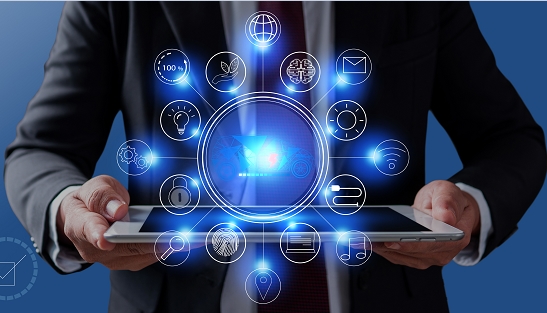
In today’s world, technology has become deeply integrated into our daily routines, affecting how we communicate, work, travel, and learn. The conveniences it offers are undeniable, making tasks more efficient and providing instant access to vast amounts of information. From smartphones to high-speed internet, we have tools that connect us globally and allow us to perform tasks at unprecedented speeds. For example, communication technology has helped bridge the distance between loved ones, allowing us to maintain close relationships even when miles apart. Platforms like video calls, instant messaging, and social media make it easier to stay connected, enhancing our social lives and strengthening bonds.

Technology’s Benefits in Modern Life
In today’s world, technology is deeply woven into the fabric of our daily lives, impacting everything from how we communicate to how we work, travel, and learn. The question of whether technology has improved our lives, however, doesn’t have a straightforward answer. While technology has undoubtedly brought numerous advancements and conveniences, it has also introduced complexities and challenges that sometimes outweigh its benefits. Technology’s impact is best viewed as a double-edged sword; it has made life easier and more efficient in many ways, but it has also created new problems that shape modern society.
On one hand, technology has made our lives easier by streamlining tasks and providing instant access to information. From smartphones to high-speed internet, we now have the tools to connect with people around the globe, access information instantly, and perform tasks at a faster pace than ever before. For example, communication technology has bridged the gap between loved ones who are separated by thousands of miles, allowing people to maintain close relationships despite distance. Online platforms like video calls, instant messaging, and social media create a sense of closeness that wasn’t possible before, enhancing our social lives and making it easier to stay in touch with family and friends.
Technology’s Role in Industry and Knowledge Accessibility
In addition, technology has revolutionized the workplace, increasing productivity and efficiency. Computers, automation, and data storage systems have transformed industries, enabling people to complete tasks in minutes that once took hours or even days. For instance, medical advancements made possible by technology, such as diagnostic tools, telemedicine, and improved treatments, have significantly enhanced healthcare, saving lives and improving the quality of care patients receive. Technology has also democratized knowledge, making education and learning resources available to anyone with an internet connection. This accessibility has helped people worldwide gain skills, pursue education, and become informed citizens.

Challenges and Complexities Brought by Technology
On the other hand, the reliance on technology has also introduced negative effects, raising questions about its impact on mental health, privacy, and social interactions. The constant connectivity and availability of information can lead to feelings of overwhelm and anxiety. Social media, for instance, has created a culture of comparison, where people feel pressured to live up to unrealistic standards presented online. Studies have shown that excessive screen time, particularly on social media, can negatively impact mental health, leading to issues such as depression and loneliness. The benefits of constant connectivity are undeniable, but the cost is often our peace of mind, as we are continually bombarded with information and updates, making it difficult to disconnect.
Lastly, while technology has brought us closer digitally, it has also created a barrier in face-to-face interactions. Many people find it challenging to engage in meaningful, in-person connections due to a preference for digital communication. This shift towards online interaction can make social relationships feel superficial and contribute to feelings of isolation. In addition, automation and artificial intelligence, while beneficial for productivity, are leading to job losses in some sectors, creating economic uncertainty for workers whose skills may no longer be needed.
In conclusion, technology has both improved and complicated our lives. While it has enabled us to perform tasks more efficiently, stay connected with loved ones, and access unlimited information, it has also created new challenges that affect our mental well-being, privacy, and social interactions. As technology continues to evolve, it is essential to approach it with a balanced perspective, leveraging its benefits while remaining mindful of its potential downsides. Our goal should be to use technology in ways that enhance our lives without compromising our mental health, privacy, or interpersonal relationships. Thus, the impact of technology on our lives is not simply good or bad—it is a mix of both, and its value ultimately depends on how we choose to integrate it into our daily existence.
![]() <Student Reporter Chloe Moon> chloemoon45@gmail.com
<Student Reporter Chloe Moon> chloemoon45@gmail.com
She is an 10th grade student at South Pasadena High School







